XTAR 100gm
XTAR 100gm
Composition:
Potassium pyrophosphate, sodium pyrophosphate in a combined concentration of 5%. Plus, sodium fluoride 0.24% equivalent to 900 ppm
Understanding Pyrophosphates:
A. Tooth whitening by removal of extrinsic stains caused by tea, coffee, other beverages:
Tooth brushing is the most convenient and economical procedure to remove plaque and extrinsic stains regularly via daily home care. Using tooth-whitening toothpaste for stain removal is becoming increasingly popular.
Types of tooth-whitening toothpastes:
A. Mechanical:
Toothpastes containing abrasive agents, such as charcoal, hydrated silica, or alumina particles can remove tooth stains by mechanical abrasion. Many factors, such as the morphology, particle size, hardness, quantity of abrasive agents, and the amount of toothpaste used— significantly influence the effectiveness of stain removal.
B. Chemical:
Studies have shown that chemical agent containing whitening toothpastes can produce a similar whitening effect compared with hard abrasive toothpastes. An advantage is that the chemically acting whitening toothpastes produce lower surface roughness compared to hard abrasive particle containing whitening toothpastes.
Enzymes, antitartar compounds, and peroxides can help remove extrinsic stains. However, peroxide chemicals remain highly controversial regarding their safety and side effects.
Antitartar agents, such as pyrophosphates, are safer options commonly used as whitening agents.
Pyrophosphates as the tooth whitening, stain-removal agents:
- Pyrophosphates are among the ingredients found in whitening toothpastes, which aim to remove extrinsic stains and prevent their reformation.
- Pyrophosphates tend to have strong binding affinity for enamel, dentine and tartar surfaces, and during adsorption they desorb the stain components.
- Pyrophosphates can bind with protein pellicles, preventing incoming stain-attached salivary proteins from adhering to the tooth surface.
B. Calculus formation:
Calculus formation is a common occurrence. Gingivitis and periodontitis were initially linked to the buildup of dental calculus. However, extensive in vivo research has revealed that biofilm plays a more crucial role in the development of these diseases.
Dental calculus results from the mineralization of bacterial plaque and poses a significant challenge to oral health. It exacerbates plaque and bacterial toxins accumulation and hinders their effective removal due to its rough surface. This, in turn, complicates proper hygiene maintenance and promotes further plaque buildup.
Several factors contribute to calculus formation. These factors encompass increased retention of bacterial plaque, biochemical elements like saliva and crevicular fluid composition, the characteristics of the microorganisms within the plaque, and dietary factors.
Notably, dental calculus accumulation varies widely among individuals and is not uniform across the population. Some individuals, even with good plaque control, experience rapid calculus buildup. This necessitates more frequent dental visits and complicates the management of periodontal issues.
Pyrophosphates as anti-tartar/ anti-calculus agents:
- When toothpaste containing the soluble tetra sodium/ potassium pyrophosphate is applied to the teeth and gums, a chemical bonding process occurs.
- Pyrophosphates (crystal growth inhibitor) act as chelating agent and removes calcium from the saliva to form a soluble complex that can be rinsed away with water thereby controlling new calculus buildup.
- Any calcium phosphate that has not yet bonded to teeth is attracted to the sodium pyrophosphate. When the new compound mixes with water, it is completely dissolved.
- The toothpaste cannot dissolve the tartar that has already bonded with the enamel, but it can stop future deposits from forming.
- Fluoride also inhibits the metabolism of acid-producing bacteria thereby indirectly help in tartar control in addition to controlling cavities.
Indications:
1. Individuals clinically diagnosed as heavy calculus formers, and those who want to control regular tartar build up.
2. Individuals looking to control extrinsic stain formation on teeth (eg. tea, coffee, tobacco stains, etc)
Guidelines:
1. Children under 12 years of age should not use pyrophosphate-containing toothpastes .
2. XTAR should be recommended for minimum 8-12 weeks and after which doctor should evaluate the results and continue further treatment
Storage:
Keep tube capped when not in use. Store below 30°C.
Contraindications:
Known sensitivity to any of the active ingredients or excipients.
Presentation:
100 gm lamitube.
Only for Doctors
Compare
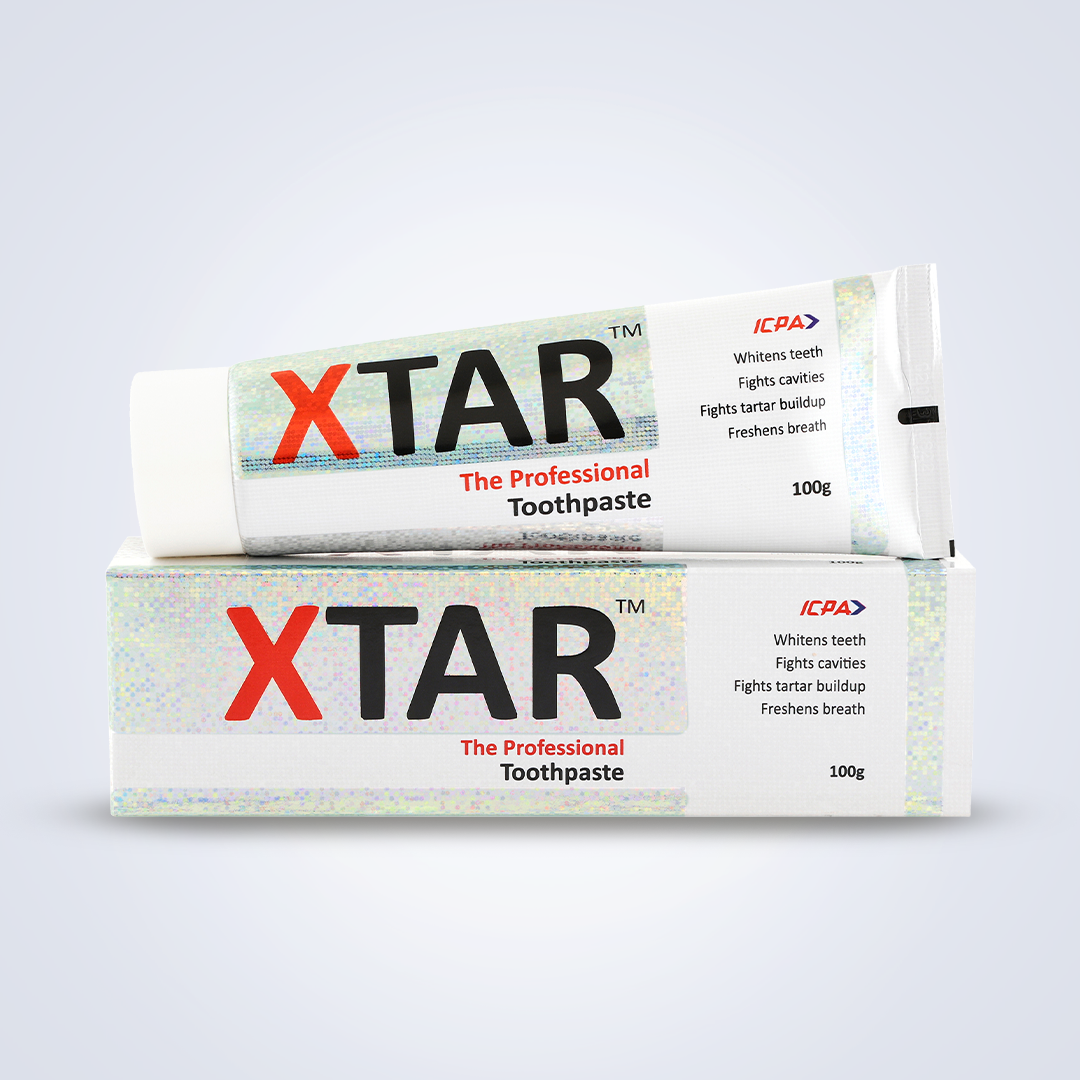
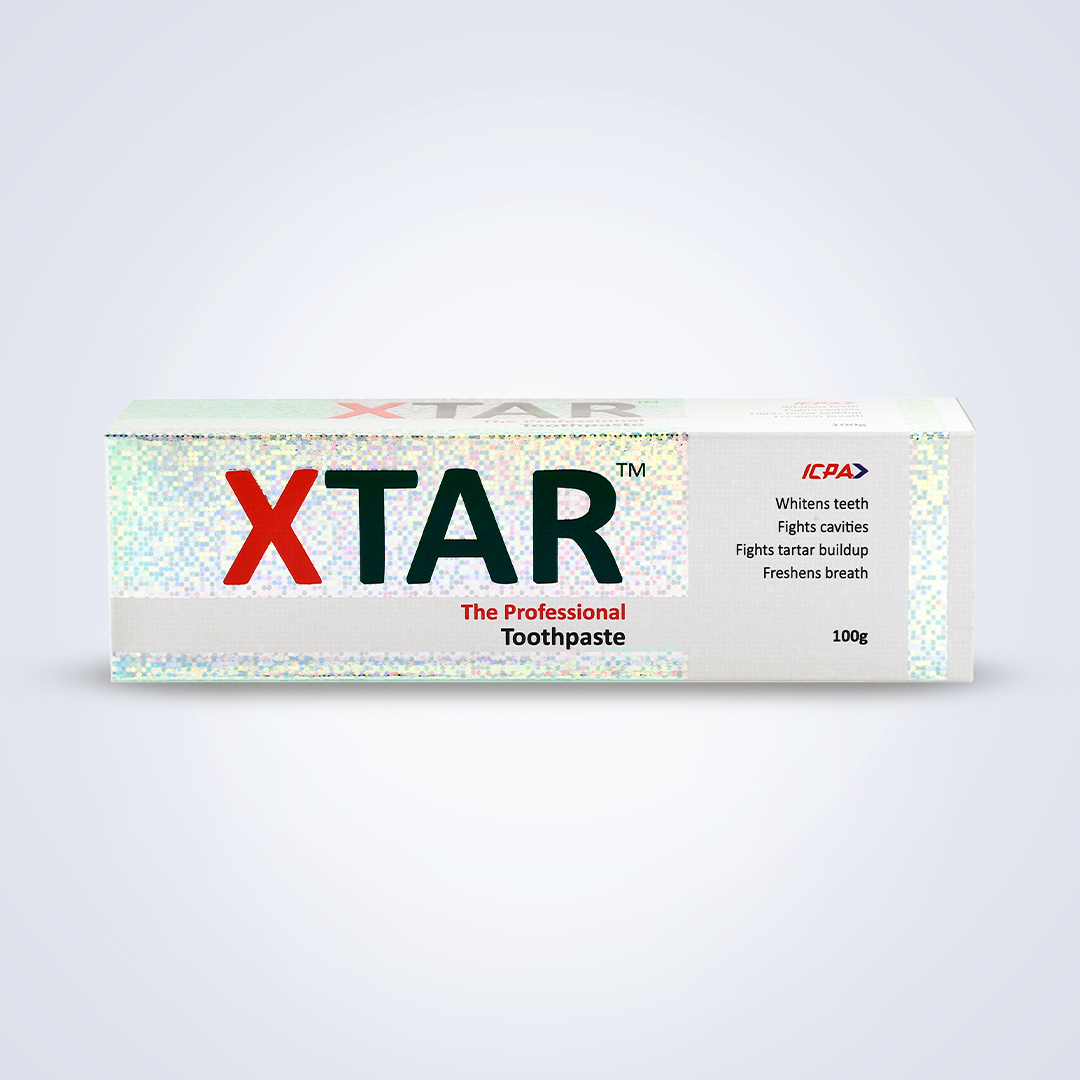
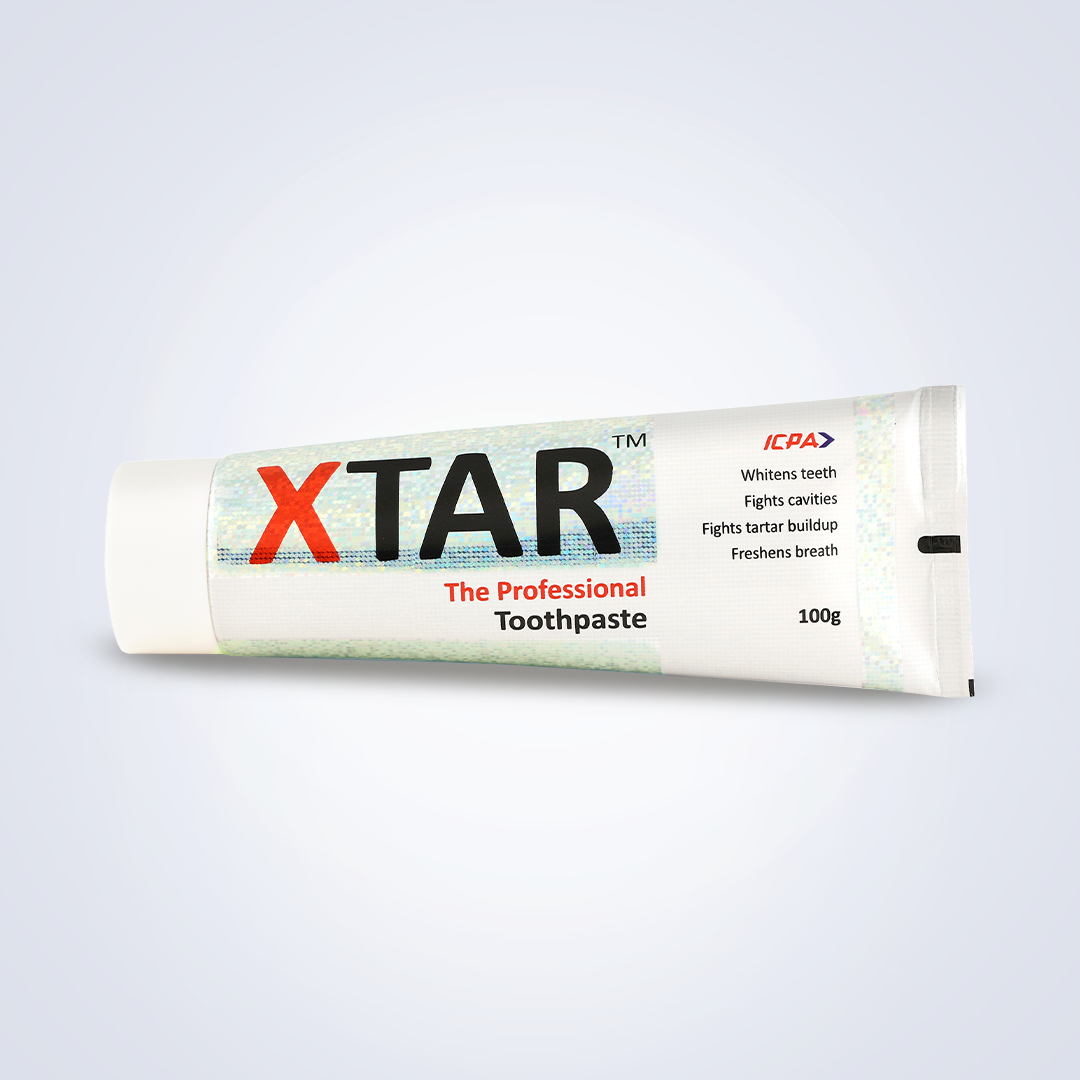
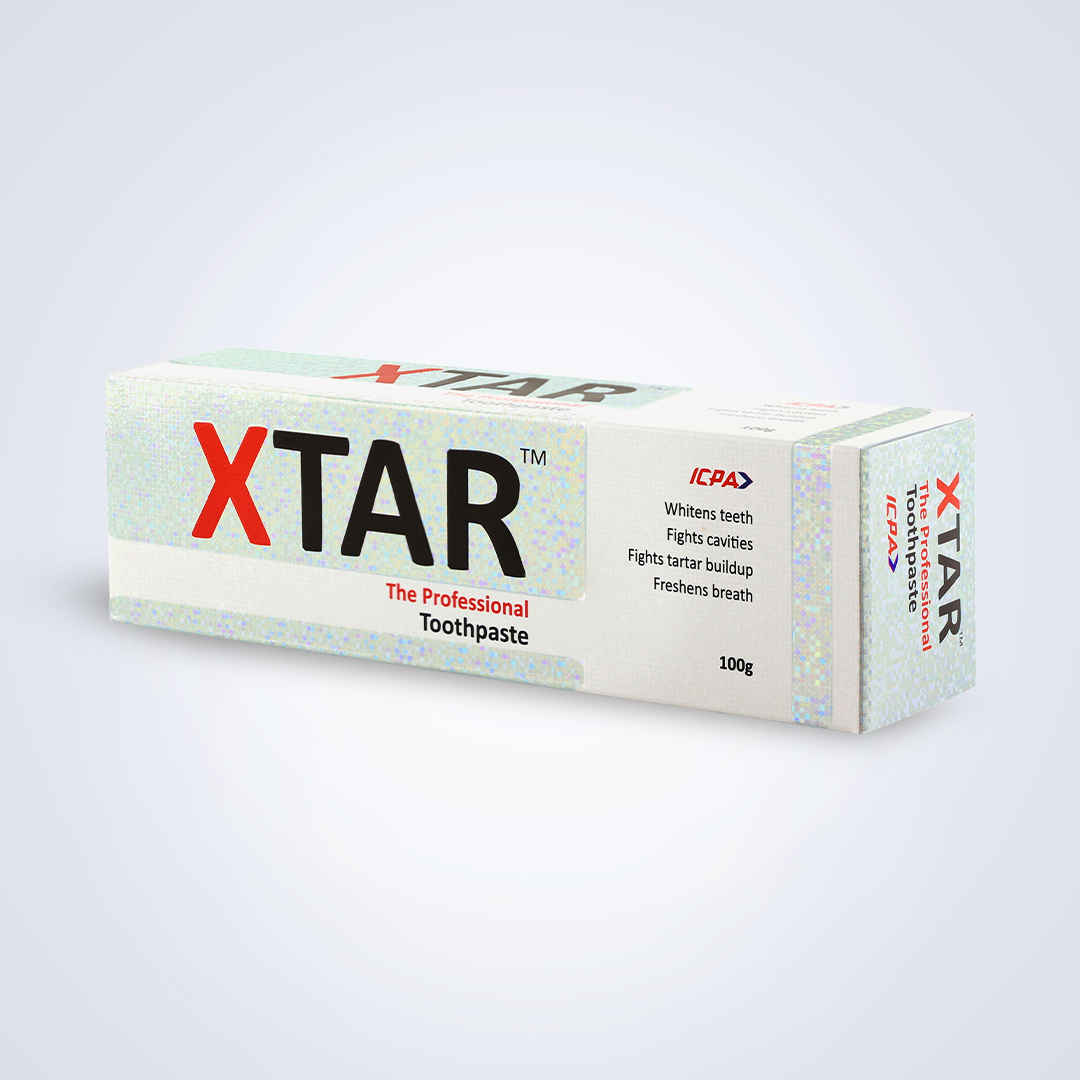
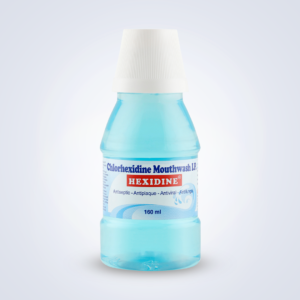
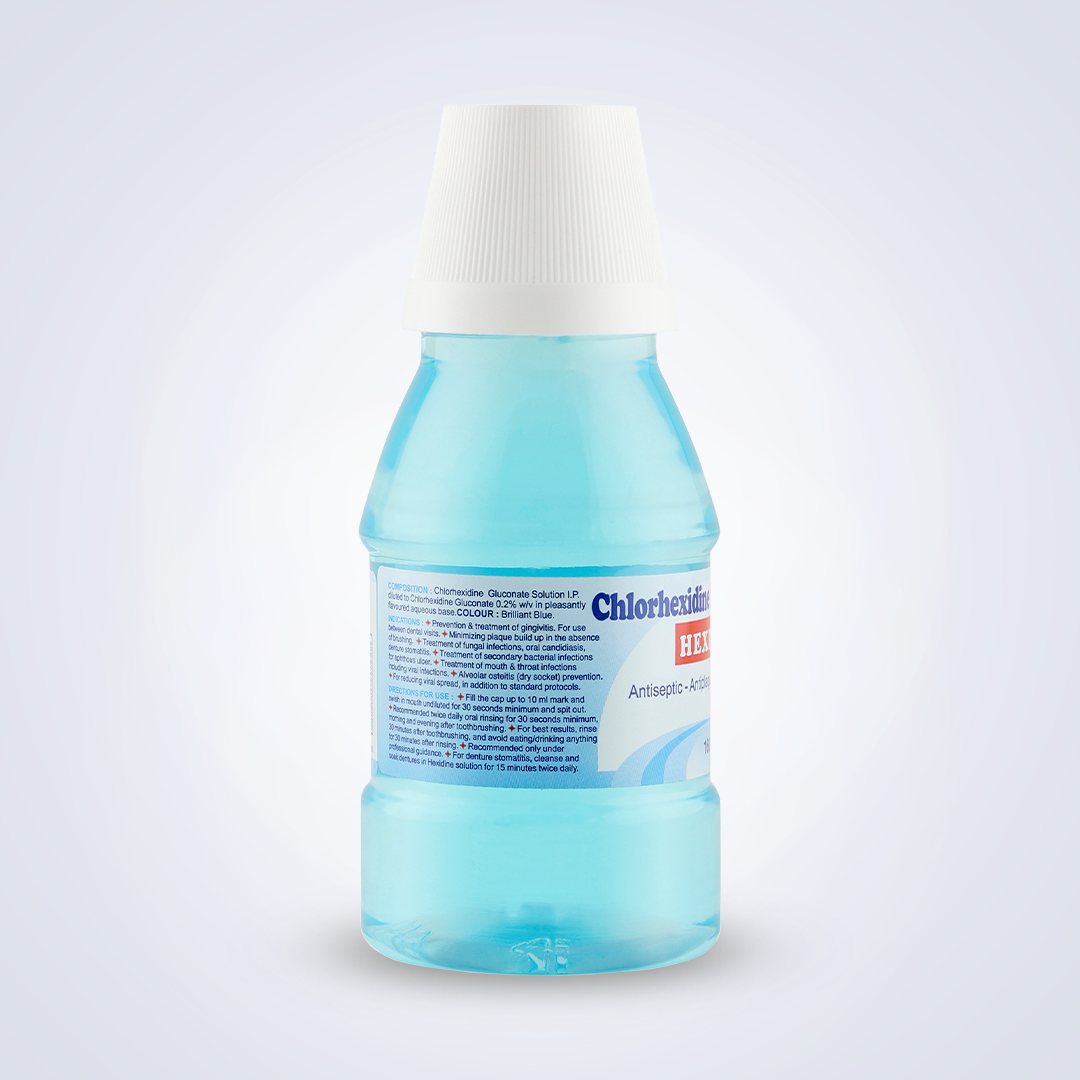
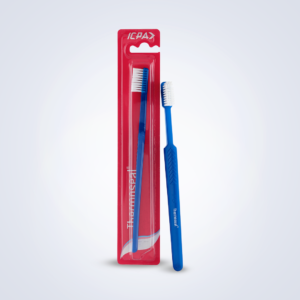
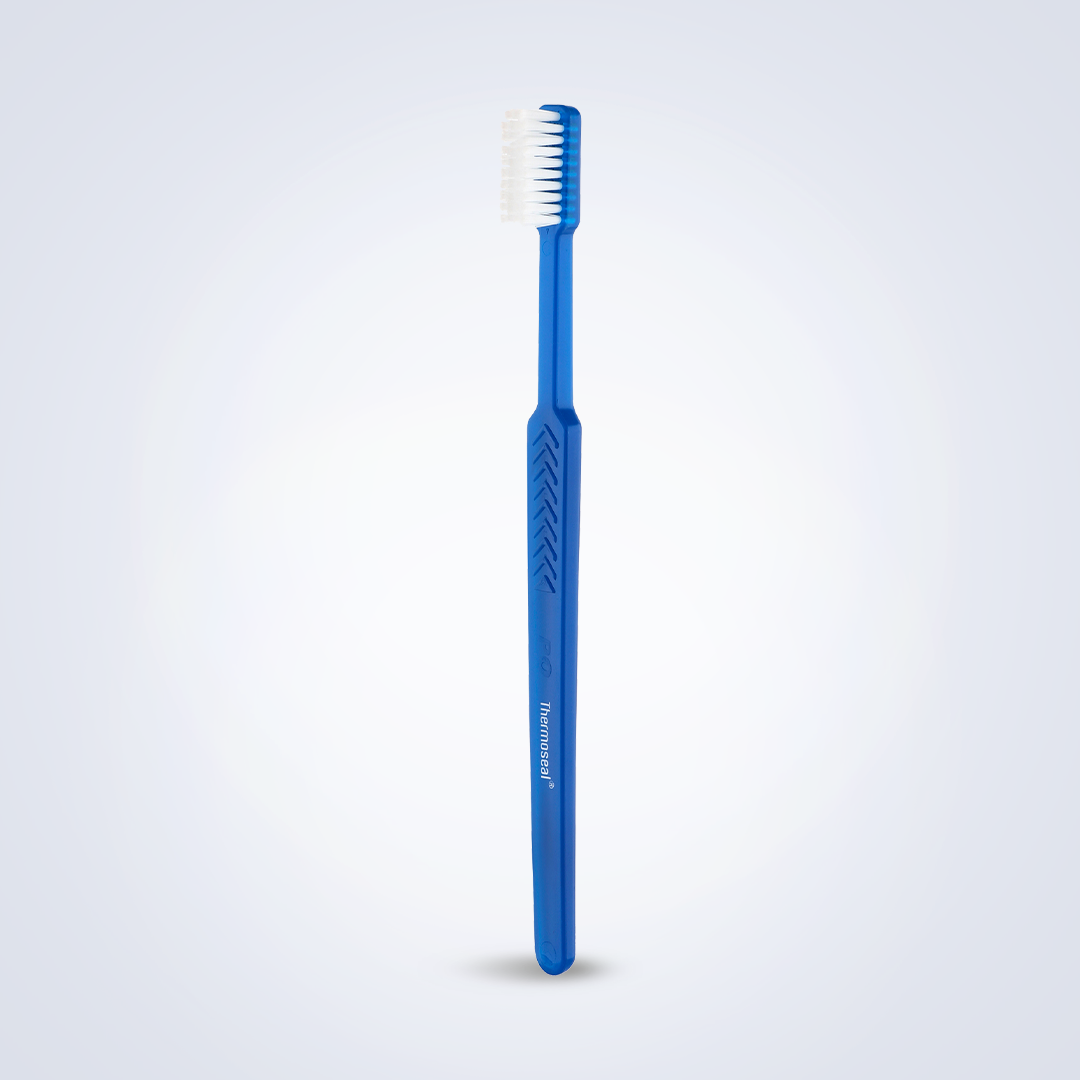
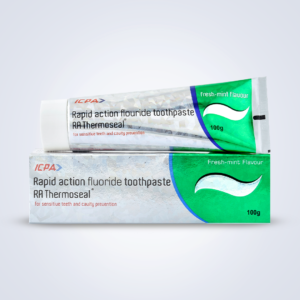
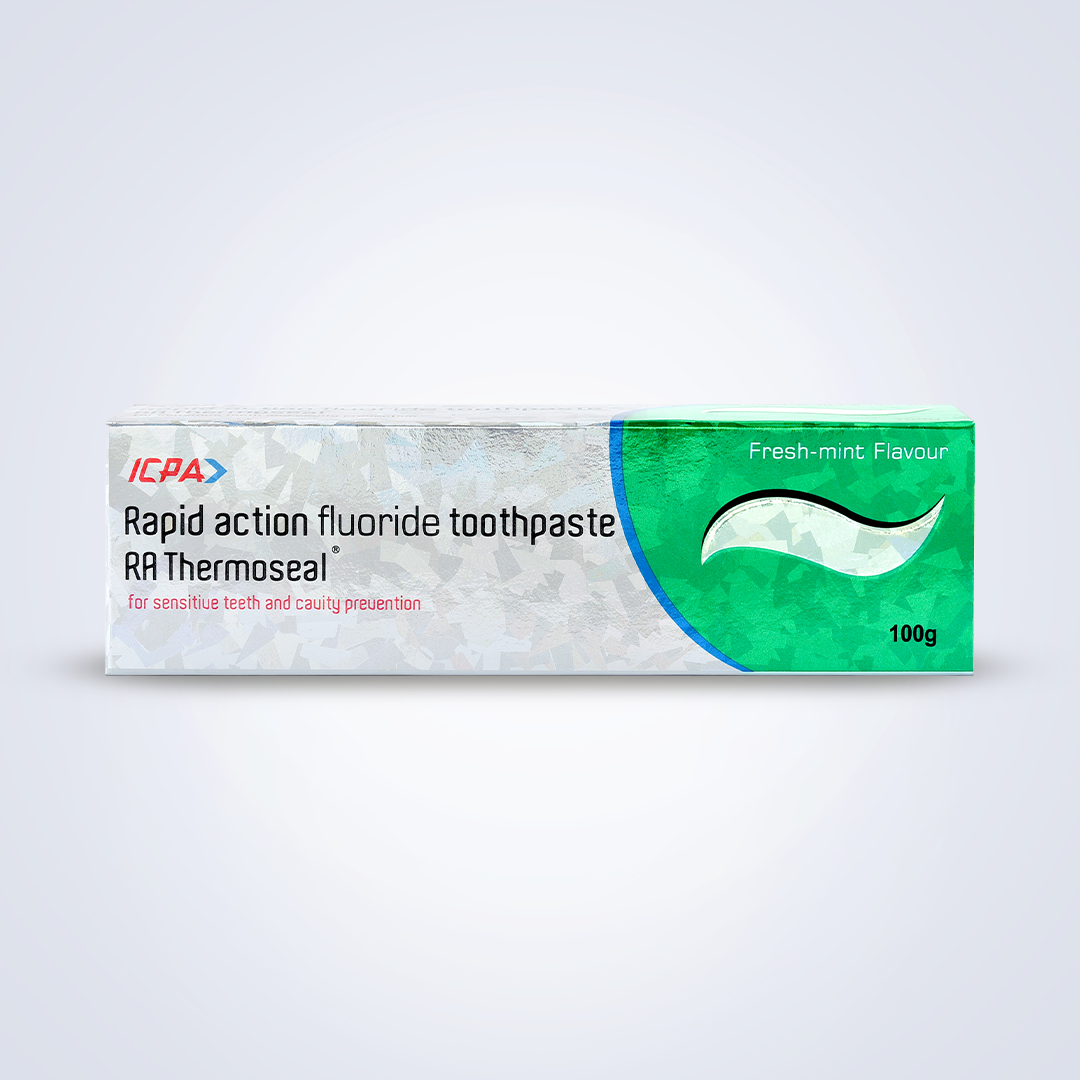
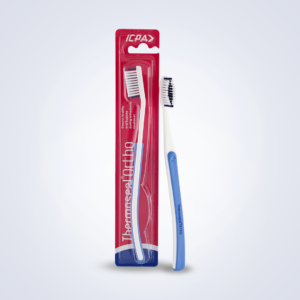


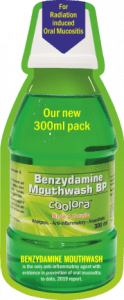
Shailesh Kumar –
Very Tooth paste
Dr Tehemtun Fali DriverD –
Good toothpaste
Mayur Patil –
Nice product
Shahbazul Haque –
Very nice toothpaste, and effective
Suraj –
Very Effective and Nice product